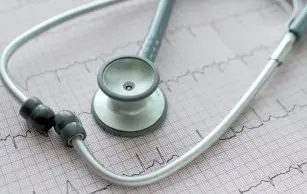Contents

During the day and night, the heart naturally changes its rhythm: sometimes it throbs, sometimes it almost stops, sometimes it beats unevenly for a while. Such reactions are mainly the result of strong emotions. However, if you frequently observe an irregular heart rhythm, you may have a disease. Therefore, any anomalies in this area must not be underestimated. Cardiac arrhythmias can be life threatening in some situations!
Cardiac arrhythmia – heart skips and skips
When the heart is healthy, it beats its rhythm steadily and evenly. Its work is regulated by the sinus node. It is here that electrical impulses are created that make the heart chambers contract and pump blood to various parts of our body. If their production is disrupted, an uneven heartbeat is a direct result. Most often, this indicates arrhythmia, which in turn often goes hand in hand with various diseases: asthma, hypertension, atherosclerosis, hyperthyroidism or deficiency of certain elements. Recently, arrhythmia in children has been diagnosed particularly often, which, on the one hand, is poorly detectable, and on the other hand, very dangerous for their health and life.
Strange heartbeat – what are the causes of arrhythmia?
Heart problems have various causes. Sometimes they are caused by strong emotions, nervous heart pain, fatigue, drinking coffee or alcohol in excessive amounts. In these situations, it will be enough to stop using drugs, calm down or provide rest for the heart to return to its normal rhythm. Sometimes, however, the causes are more serious and this means heart or circulatory system diseases, i.e. atherosclerosis, circulatory failure, hypertension or magnesium, potassium and calcium deficiency. Arrhythmia also occurs during pregnancy, menopause, fever or hyperthyroidism.
Arrhythmia Symptoms – When Should You Be Concerned?
Arrhythmia occurs when the heart beats irregularly for a short while. Sometimes there is a feeling that the heart begins to “pound in the chest”, which gives the impression that it is about to jump out of the chest. Additionally, some patients complain of concomitant cramps when the blood pump “hangs” or “jumps” for a while. It happens that arrhythmias are accompanied by:
- stinging,
- awakening from sleep by a sudden rhythm disturbance,
- feeling short of breath
- feeling hot
- weakness.
Arrhythmia is usually the first sign that something is wrong with the heart, a sign of other ailments. It happens that the reason is insignificant (e.g. in situations of increased stress, high emotions, etc.), but often it is a serious situation that can be life threatening. That is why it is not worth underestimating these types of symptoms, especially when they occur in high intensity and frequency.
Treatment of cardiac arrhythmias
Today, we have access to many different treatments. Not all disorders require intensive therapy, sometimes it is enough to supplement electrolytes, discontinue stimulants, etc. Sometimes, however, arrhythmias require a visit to a doctor. In some cases, an uneven heartbeat may require both medication and intensive treatment of the disease causing the arrhythmia. Therefore, in order to be effective in such a situation, the cause of the arrhythmia must first be thoroughly investigated and determined, and only then appropriate remedial steps should be taken.









